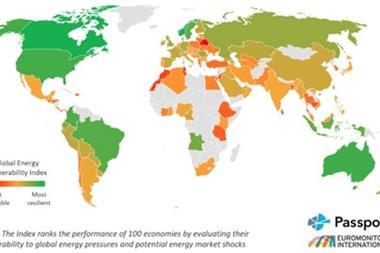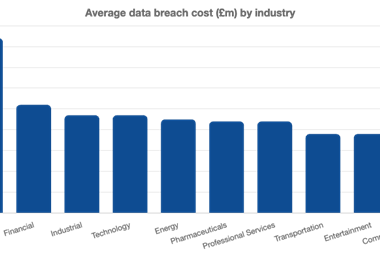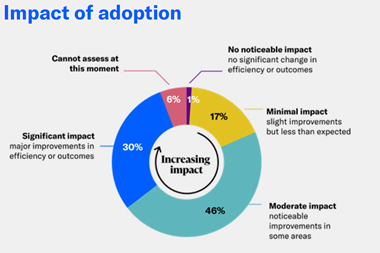Sherron Watkins, one of Time Magazine"s people of the year for 2002, remarked: "We value the wrong people. Warren Buffett is boring, and he doesn"t give too many interviews, but he didn"t invest in tech stocks, because he didn"t understand how they made money. He was right. But we value splashy leaders."
Cynthia Cooper, who shared the award, commented, "People who move to the top are typically racehorses, not workhorses. And they"re very charismatic." Ms Watkins rejoined: "And the dark side of charisma is narcissism."
Sherron Watkins and Cynthia Cooper know the impact that charismatic leaders can have on a business when they lose touch with the rest of the world. The two women, together with Coleen Rowley, shared the Time Magazine award as the whistleblowers respectively at Enron, WorldCom and the FBI.
Acknowledging the importance of whistleblowers, the Sarbanes-Oxley Act of 2002, rushed through Congress in the wake of the collapse of Enron, WorldCom and others, expands the protection for employees who report corporate misconduct.
Yet, for whistleblowing to exist, there first has to be misconduct. Shareholders, employees, and business partners would have been better served if the corporate governance regime had anticipated how self-motivated, narcissistic corporate leaders might behave when a collapsing bubble suddenly deprived them of the rewards and adulation they had come to expect.
Rakesh Khurana, assistant professor of organisational behaviour at Harvard Business School, has made a study of the superstar CEO. Charisma in corporate leaders, he says, only became important in the 1980s when investors wanted faster profit growth and decided they needed a new style of CEO, who could face the challenges of global competition and rapid technological change.
Two other important social changes took place at the same time. Writing in the Harvard Business Review, Professor Khurana describes the emergence of "an almost religious conception of business", illustrated by the growing use of words like mission, vision and values. The second change was the rise of popular capitalism and increased media coverage of business. This typically focussed on personalities and clear stories.
According to professor Khurana, this environment bred a new variety of corporate leader. The old, predictable organisation men were supplanted by exciting, almost messianic figures with a vision of a radically different future. They would attract and motivate followers "for a journey to the new promised land."
The telecoms vision
Telecommunications group WorldCom was, for a time, the 25th largest company in the US. Its chairman and CEO, Bernie Ebbers, was a property investor in a small way when, in 1983, he acquired a long-distance telephone resale service. In the early1990s, he combined it with two smaller companies and created WorldCom. Under his leadership WorldCom bought more than 60 companies, including MCI Communications, which came with a price tag of $37bn and was more than three times the size of WorldCom. At the time it was the largest takeover in US corporate history.
Ebbers was certainly splashy. A 6"4", cowboy-boot-wearing, former basketball coach from Canada, he was "a colourful entrepreneur," "a titan of the new economy" and "a deeply religious man". The booming stock market loved him.
On 2 October 2002, Stephanie Mehta wrote in Fortune: "It was Bernie Ebbers"s success with investors that marked the beginning of the telecoms boom, and the escalating series of thrusts and parries that led to the crash. Every time Ebbers announced one of his acquisitions, Wall Street embraced him more tightly; over the course of the 1990s, WorldCom stock rose 7,000%."
The share price reached $64 in mid 1999. Then, along with other new economy stocks, it began the now familiar pattern of descent. WorldCom tried an even more audacious move – a $146bn bid for rival US telecoms group Sprint. In mid-2000, competition authorities in the US and Europe blocked the deal.
The share price continued to drop. At the end of 2001, it was $24; by mid-February, $14.6 and $9 by late April. Like other fast growing companies, WorldCom had rewarded senior executives through stock options, a valuable source of wealth if the share price rises above the option price. Ebbers had taken a bank loan to buy WorldCom shares; WorldCom loaned him $408m rather than forcing him to sell shares to repay it. Investors had had enough. On 30 April 2002, Ebbers resigned.
As vice president of internal audit at WorldCom, Cynthia Cooper discovered that the company had inflated profit after the results started slipping, not by using fancy off balance sheet transactions, but by simple accounting malpractice. In particular, it had treated line costs – mostly fees for use of third-party network services and facilities – as capital expenditure and not expenses.
On 25 June 2002, WorldCom announced that it would restate its 2001 and first quarter 2002 earnings, reducing the profit declared by $3.8bn, resulting in losses. Chief financial officer Scott Sullivan, once regarded as an "accounting wunderkind", was fired; senior vice president and controller David Myers resigned. WorldCom began to cut 17,000 staff. On 21 July, the company and most of its active US subsidiaries filed voluntary petitions for reorganisation under Chapter 11 of the US Bankruptcy Code.
The Securities and Exchange Commission (SEC) brought an action against WorldCom alleging securities fraud, and in November reached partial settlement, ordering extensive reviews of corporate governance systems and internal accounting controls to minimise future violations. By then the profit gap had grown to $9bn.
In January 2003, WorldCom warned that it might have to write off "substantially all existing goodwill and other intangible assets", recorded as worth approximately $50bn. A material portion of a further $32bn for property and equipment may also have to go. Bernie Ebbers has gone to ground. He has not yet been charged by the SEC, but a number of his associates have.
Under Chapter 11, WorldCom is temporarily protected from its creditors while new chief executive and chairman, Michael Capellas, formerly president of Hewlett-Packard, works to restore the company to solvency. In mid-January, Capellas announced his plan for the next 100 days and emphasised the company"s commitment to corporate integrity. He pointed to the company"s new board of directors, the recent creation of a corporate ethics office, an enhanced code of ethics and new employee financial reporting and ethics training initiatives.
The US has enacted a wide range of measures to following the collapse of WorldCom, Enron, Tyco and others. Under the Sarbanes-Oxley Act, chief executives and chief financial officers must personally certify that their companies" financial statements and other public disclosures are "fairly presented." Miscertifying can lead to 20 years in jail and a $5m fine.
In the current climate this measure led to a number of CEOs and finance directors deciding to restate their earnings, but, as professor Khurana points out: "Charismatic leaders reject limits to their scope and authority. They rebel against all checks on their power and dismiss the rules and norms that apply to others."
The Enron and WorldCom debacles were foreseeable in principle if not in detail. Investment bubbles are not new; the process is well documented. In his book Investment Psychology Explained, independent investment adviser Martin Pring comments: "One of the characteristics of manias, especially in their final days, is that they are usually riddled with fraud."
Perhaps there are simply limits to what corporate governance and risk management can do in the face of an investment bubble. The editor of Risk Management Reports, Felix Kloman, comments: "In the late 1990s the stock market bubble created a euphoria that filtered through many organisations that otherwise might have proceeded more cautiously. When executives saw others gambling and winning, they were impelled to do the same, and for a while it seemed to work.
"Enron collapsed despite having one of the early chief risk officers and what appeared to be a relatively sophisticated approach to risk management. If everyone in an organisation, from the operating units through the board, is consumed with irrational euphoria, then even the most sophisticated process of risk management won"t work."
Lee Coppack is a risk management writer and analyst.



















